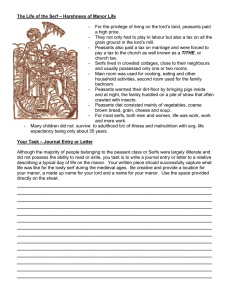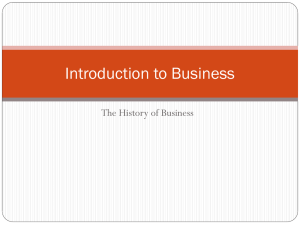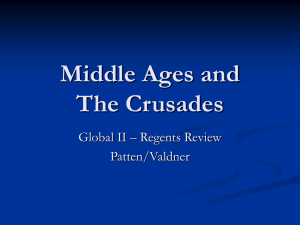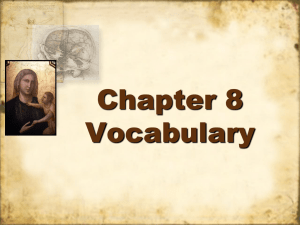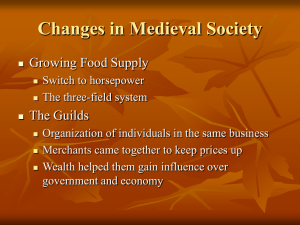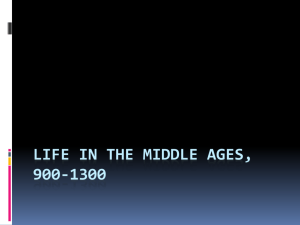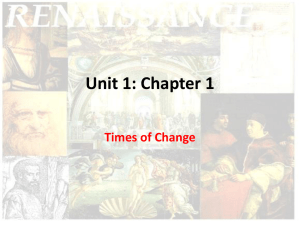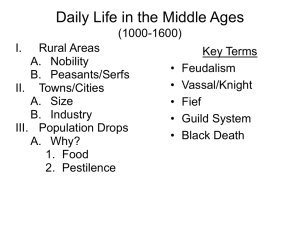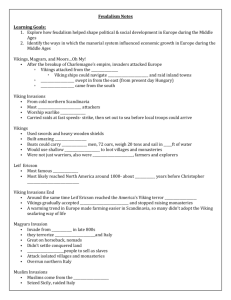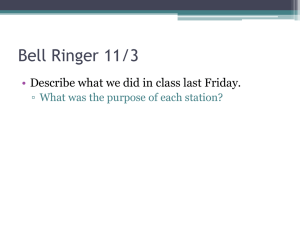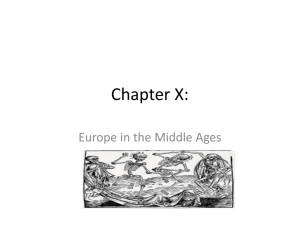Medieval Europe: Study Guide & Key Concepts
advertisement
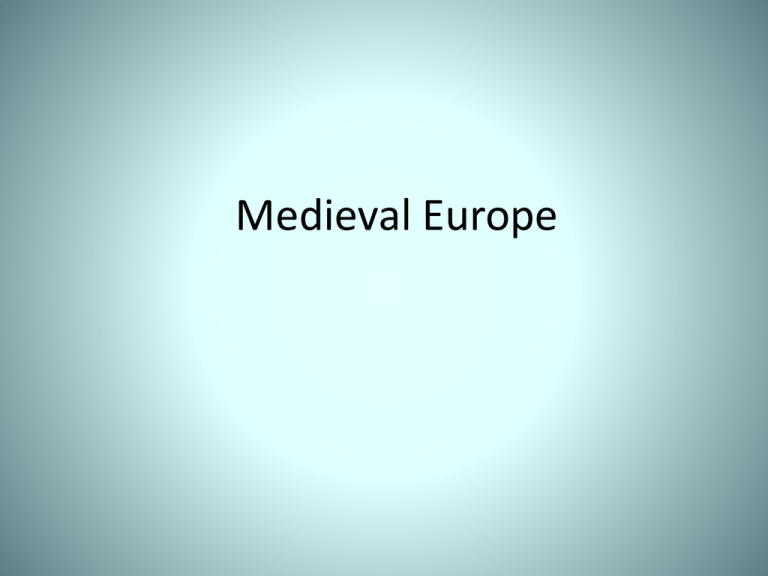
Medieval Europe True or False? Two inventions that improved farming in the Middle Ages were the horse collar and the horseshoe. Answer: True Serfs were not required to provide labor services for the manor. Answer: False Peasants legally bound to the land. What are serfs? Agricultural estate run by a lord. What is a manor? The opposite of a barter system. What is a money economy? City merchants and artisans. What are burghers? Craft business associations. What are guilds? Territories in central Italy controlled by the pope. What are papal states? The appointment of church officials by lords. What is lay investiture? Christian rites. What are sacraments? Heresy court or Holy Office. What is the Inquisition? Objects connected with saints. What are relics? Forbids priests from giving the sacraments to a certain group of people What is an interdict? An annual tax, usually paid on land or property. What is a taille? Members of the wealthiest and most powerful families. What are the patricians? Artisans and merchants living in walled cities. What are the bourgeoisie? The language of everyday speech in a particular region. What is vernacular? Its chief task was to harmonize Christian teachings with the works of Greek philosophers. What is scholasticism? The population increased during the High Middle Ages for all of these reasons EXCEPT A. B. C. D. Increased peace and stability Better food production More doctors New technology Answer: D One function of craft guilds was to • • • • A. B. C. D. Encourage competition among workers Set quality standards Organize workers to strike Keep women out of the workforce Answer: B Set quality standards. Which of the following is NOT a part of the guild training system? • • • • A. B. C. D. Master Vassal Journeyman apprentice Answer: B Vassal All of the following were goods that increased in availability due to the expansion of trade EXCEPT • • • • A. B. C. D. Spices Sugar Oxen Silk Answer: C Oxen The Cistercians • A. Developed a strict, spiritual order • B. Stayed in their monasteries • C. Thought the Benedictine order was too strict • D. Joined the Franciscans to form the Dominicans Answer: A Developed a strict, spiritual order Convents were havens for all of the following EXCEPT A. B. C. D. Daughters without husbands Widows women merchants Female intellectuals Answer: C women merchants A __was a heavy, wheeled plow with an iron plowshare. • • • • A. B. C. D. Dozer Carruca Shovel Cabochon Answer: B Carruca Serfs were different from peasants in that serfs • A. Owned the land they worked on. • B. Could live anywhere they chose except land that was part of a lord’s estate. • C. Were legally bound to the land upon which they worked and lived. • D. Lived in the cities and were not farmers like the peasants. Answer: C were legally bound to the land which they worked and lived. Joan of Arc brought the Hundred Years’ War to a decisive turning point by • • • • A. B. C. D. Spying on the English armies Inspiring the French with her faith. Fleeing to the English. Seducing Charles Answer: B Inspiring the French with her faith
